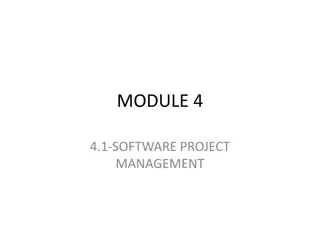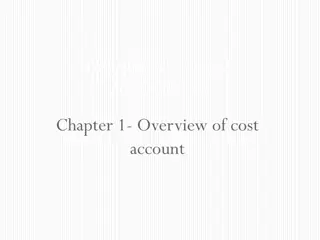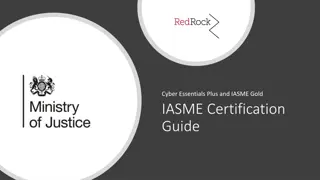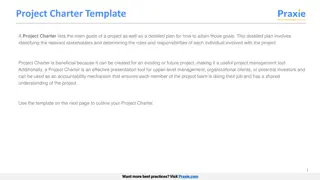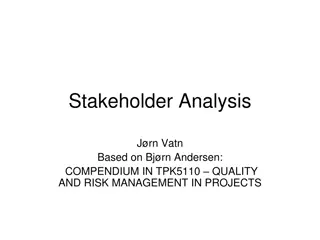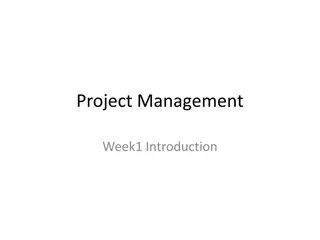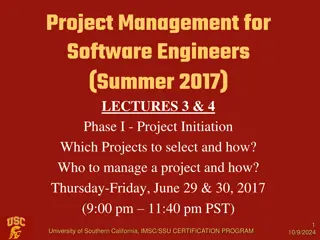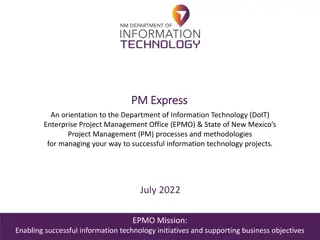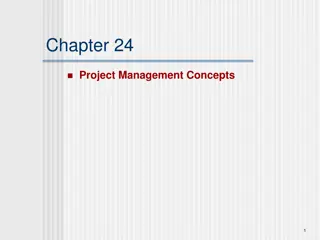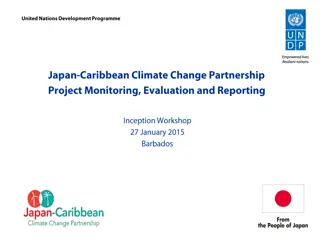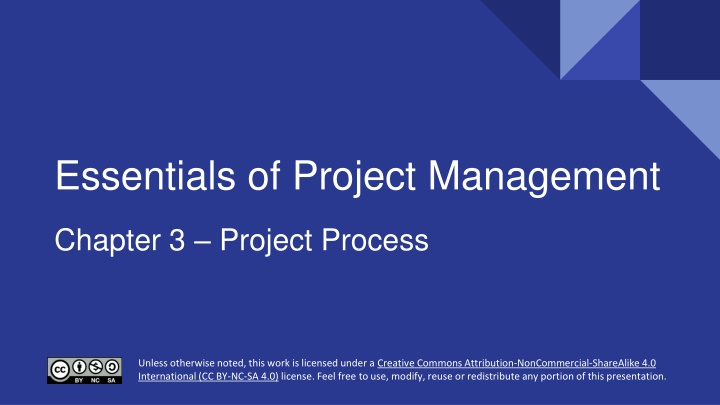
Project Management Essentials: Processes and Phases
Explore the key processes and phases in project management, from initiation to planning. Learn about the dual nature of project management, the importance of project planning, and the challenges project managers face. Discover how project monitoring and controlling are integral to project success, and the significance of closure in project completion.
Download Presentation

Please find below an Image/Link to download the presentation.
The content on the website is provided AS IS for your information and personal use only. It may not be sold, licensed, or shared on other websites without obtaining consent from the author. If you encounter any issues during the download, it is possible that the publisher has removed the file from their server.
You are allowed to download the files provided on this website for personal or commercial use, subject to the condition that they are used lawfully. All files are the property of their respective owners.
The content on the website is provided AS IS for your information and personal use only. It may not be sold, licensed, or shared on other websites without obtaining consent from the author.
E N D
Presentation Transcript
Essentials of Project Management Chapter 3 Project Process Creative Commons Attribution-NonCommercial-ShareAlike 4.0 International (CC BY-NC-SA 4.0) Creative Commons Attribution-NonCommercial-ShareAlike 4.0 International (CC BY-NC-SA 4.0) Unless otherwise noted, this work is licensed under a Creative Commons Attribution-NonCommercial-ShareAlike4.0 International (CC BY-NC-SA 4.0) license. Feel free to use, modify, reuse or redistribute any portion of this presentation.
3.1. Learning Objectives By the end of this chapter, you should be able to: 1. Explain the four processes of project management. 2. Describe the documentations produced during the project initiation. 3. Describe the approach to project planning. 4. Identify the importance and the purpose of project planning. 5. Describe how project monitoring and controlling are simultaneous and continuous during project. 6. Identify the reasons for project closure.
3.2 Initiation Project management has a dual nature; it is both a series of distinct phases with a clear beginning and end, and a continuous, circular process in which each ending leads to a new beginning.
Initiation A traditional view of Project Management: Project management can be described as a series of sequential phases, with project initiation coming right after project selection.
3.3 Planning Project planning is at the heart of the project life cycle, and tells everyone involved: where you re going how you re going to get there. Image by Borko Manigoda from Pixabay
Planning The project planning phase is often the most challenging phase for a project manager, as you need to make an educated guess about the staff, resources, and equipment needed to complete your project The purpose of the project planning phase is to: Establish business requirements Establish cost, schedule, list of deliverables, and delivery dates Establish resources plans Obtain management approval and proceed to the next phase
Planning The whole point of planning is to develop strategies to manage the: Changes to scope Schedule Cost Quality Resources Communication Risk Procurement Stakeholder engagement
3.4 Execution During the implementation phase, the project plan is put into motion and the work of the project is performed. It is important to maintain control and communicate as needed during implementation. Image by Wokandapix from Pixabay
Execution During project implementation, people are carrying out the tasks, and progress information is being reported through regular team meetings. The project manager uses this information to maintain control over the direction of the project by comparing the progress reports with the project plan to measure the performance of the project activities and take corrective action as needed.
3.5 Monitoring Successful project managers know how to gather data on the health of their projects, analyze that data, and then, based on that analysis, make adjustments to keep their projects on track. They practice project monitoring, analytics, and control. Photo by Jason Strullon Unsplash
3.6 Closure Closing Processes At the end of a phase of our project, or the entire project, we must get final approval from the customer, archive our records from the project, compile the lessons learned, and pay any outstanding bills.
Key Takeaways Project management can be described as a series of sequential phases, with project initiation coming right after project selection. The project planning phase is often the most challenging phase for a project manager The plan should be updated and published on a regular basis.



